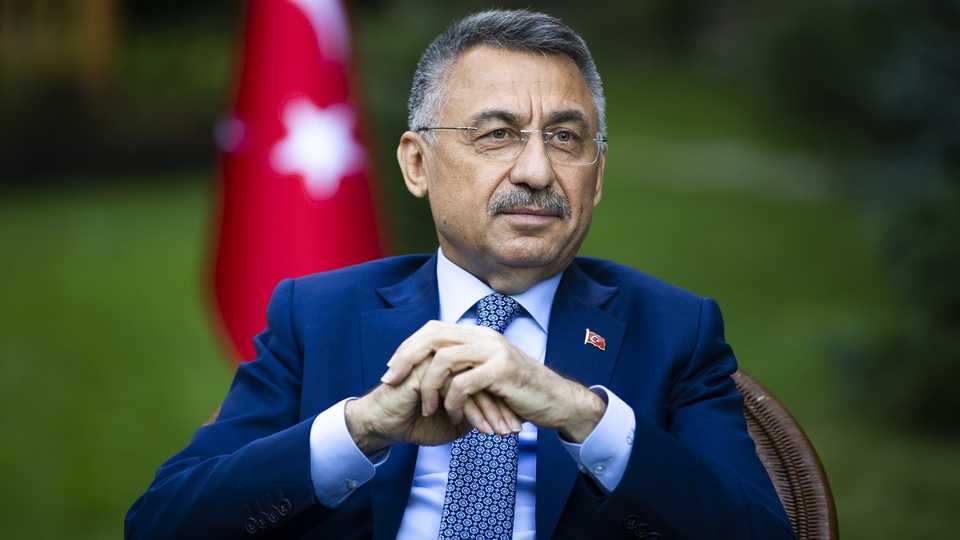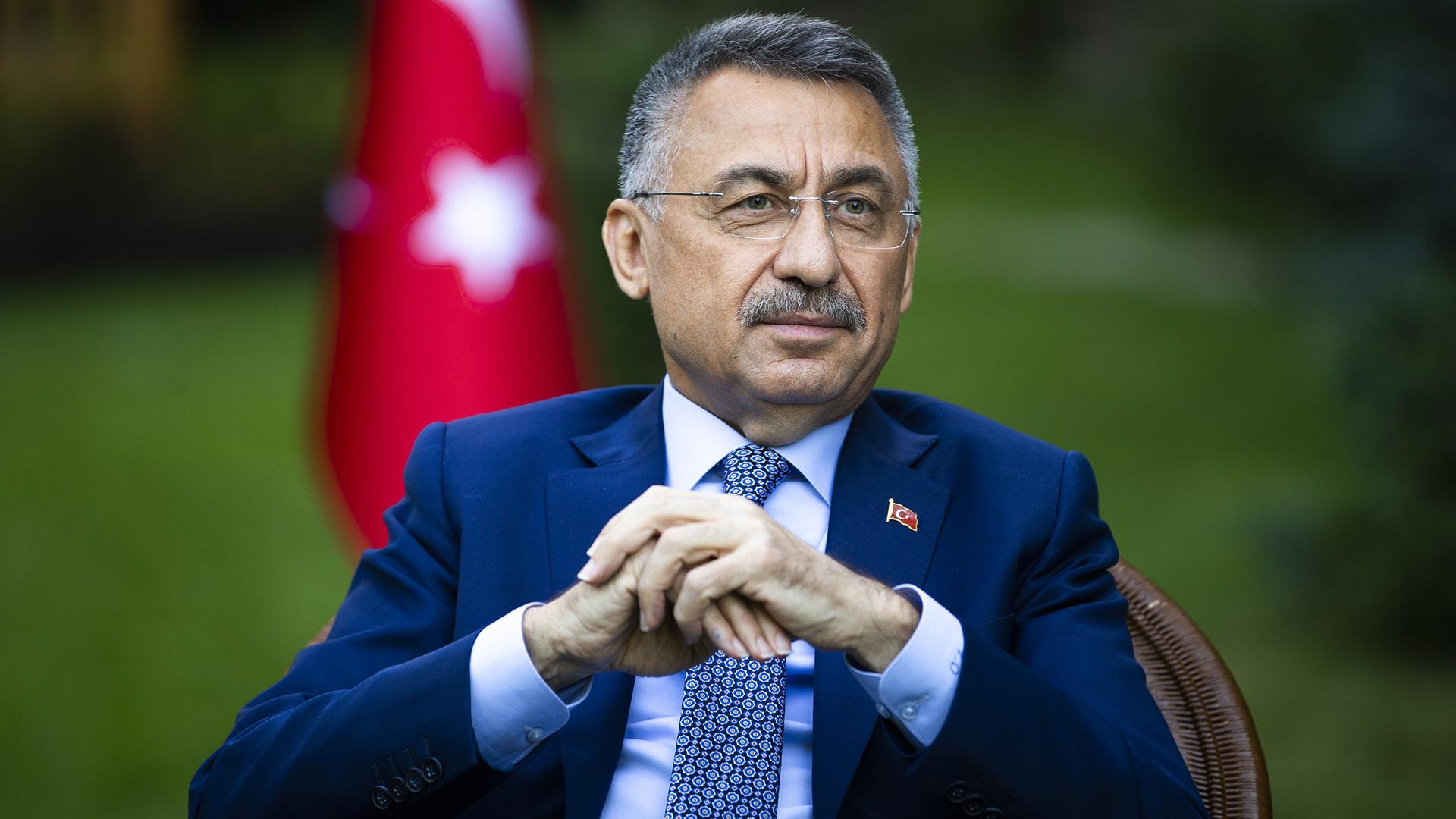
The maritime agreement between Turkey and Libya is Ankara’s “red line” in the eastern Mediterranean, Turkish Vice President Fuat Oktay said on Wednesday.
Oktay warned that “no one can question” the deal “especially France,” during a webinar with the Foundation for Political, Economic and Social Research (SETA) think-thank in Washington.
The landmark deal signed last November lays out maritime boundaries between the two countries to establish an exclusive economic zone.
On Ankara’s seismic survey in an area south of Meis Island, or Kastellorizo, the vice president said that Turkey is doing work only on its continental shelf.
He noted that Greece cannot question Turkey, which has the longest coastline in the region and the continental shelf is “4,000 times bigger” than the island. “Would you expect Turkey to accept it?” he stressed.
Oktay said the island was supposed to be demilitarised based on the 1947 Paris Peace Treaty because it is so close to Turkey but is now militarised. “That is directly a concern of Turkey,” said Oktay.
After Athens objected to Ankara’s seismic survey in the area in July, German diplomatic efforts helped defuse tensions between Turkey and Greece.
But Greece’s controversial move to sign a maritime delimitation agreement with Egypt, which Turkey says violates its continental shelf and maritime rights, has sparked further tensions between the two neighbours with Ankara accusing Athens of pursuing maximalist policies in the eastern Mediterranean.
READ MORE: Kastellorizo: the next crisis spot between Turkey and Greece?
READ MORE: Turkey-Greece tensions: eastern Mediterranean claims in maps
Ankara-Tripoli agreement
Ankara and Tripoli inked a demarcation on maritime borders that establishes an exclusive economic zone and defence and security agreements at the end of 2019.
Ankara provided military advice to UN-backed Government of National Accord, which was under attack by warlord Khalifa Haftar, who is backed by France, UAE, Egypt and Russia.
Libya has been torn by civil war since the ouster of Muammar Gaddafi in 2011. Government efforts for a long-term political settlement failed due to a military offensive by militias loyal to warlord Haftar.
Turkey’s support turned the tide, helping the GNA gain some ground in the conflict.
Since last September, several high-level meetings were held in the German capital – known as the Berlin peace process – to put an end to the Libyan conflict, with the participation of France, Italy, Germany, and the UK.
The EU previously called the Berlin peace process and UN-led negotiations the only way to bring an end to the conflict in Libya.
READ MORE: What are some of the major issues between Turkey and Greece?










Discussion about this post